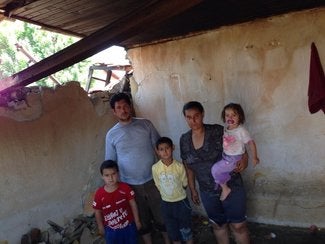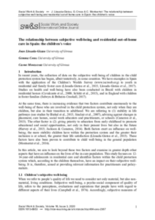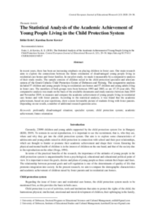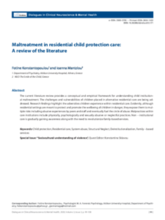

Displaying 121 - 130 of 527
For this study, a sample of 365 adolescents in residential care settings in Portugal completed a set of self-reported measures, specifically, the Rights perceptions scale, the Place attachment scale and Scales of psychological well-being.
In this article, the authors aim to examine in greater depth aspects that have an influence on the lives of the in-care population.
This article describes the development of an information system, built in order to monitor the data gathered in the context of a pilot project for early child protection interventions with unaccompanied minors.
This research aims to explore the connections between the future orientation of disadvantaged young people living in residential care homes and foster families, by a comparative analysis of their study results.
This How We Care series examines how three of Family for Every Child's Members are promoting the effective integration and reintegration of children on the move through their programming.
This document includes a summary of Save the Children's work to strengthen civil society organizations in Kosovo, with a particular focus on banning corporal punishment in all settings.
The aim of this article is to reflect on the consequences of the global pandemic on the child welfare system, analysing the main consequences on children, adolescents and educational teams. The context of analysis focuses on the author's experiences in the child welfare system in Catalonia (Spain) during the pandemic, through his work as a social educator and researcher.
This Practitioner Guidance Paper shares the different approaches taken by three Family for Every Child Members to mitigate this disruption: moving to online learning for unaccompanied minors with METAdrasi in Greece; using the radio to provide far-reaching lessons with FOST in Zimbabwe; and engaging parents in their children's education using a socially-distanced homework collection system with CAP Liberia.
Data and Trend Analysis (DATA) Refugees and Migrants at the Western Balkans Route Regional Overview, covering period April – June 2020, describes key trends in migrations in the region, detailing information about the number of people on the move, demography (age, sex, country of origin, etc), behavioral patterns, and routes in use - with a focus on children, particularly unaccompanied children.
The current literature review provides a conceptual and empirical framework for understanding child institutional maltreatment.






